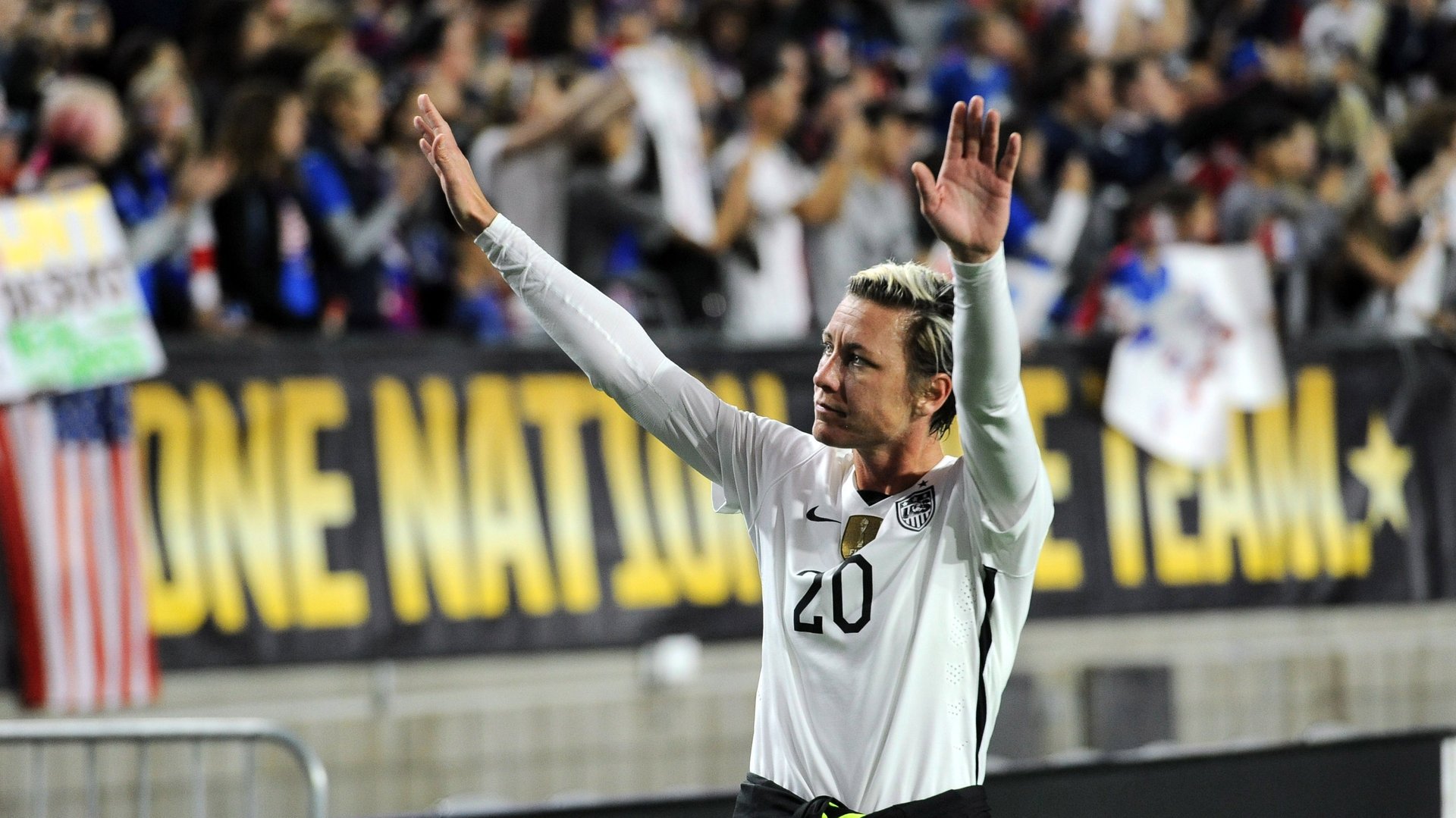The greatest American to ever play soccer is retiring today
The US women’s national team faces China tonight (Dec. 16) in a friendly soccer match in New Orleans. It’s the final game of the reigning World Cup champions’ victory tour, but more importantly, it brings to an emotional close the extraordinary career of Abby Wambach, America’s greatest soccer player.


The US women’s national team faces China tonight (Dec. 16) in a friendly soccer match in New Orleans. It’s the final game of the reigning World Cup champions’ victory tour, but more importantly, it brings to an emotional close the extraordinary career of Abby Wambach, America’s greatest soccer player.
That distinction may surprise those who haven’t paid attention to the amazing striker—still too many people unfortunately, especially given that she helped to make the US victory over Japan in the World Cup final this summer the most-watched soccer game in US history. But Wambach’s achievements speak for themselves.
In addition to her World Cup title, she has two Olympic gold medals and numerous “player of the year” awards, including FIFA’s World Player of the Year in 2012. In a brilliant four-goal performance on June 20, 2013, she became the top international goal scorer in history, including men and women, and has widened the gap since. She now has 184 international goals, and as the Guardian put it, has scored ”nearly as many with her head as soccer legend Pelé scored with his entire body.”
And she delivers under pressure when it counts the most, just like hallowed names in American sports such as Michael Jordan and Joe Montana. She has 52 game-winning goals in international play, and owns what thousands of fans around the world voted the greatest goal in FIFA Women’s World Cup history: a “Header Heard Round The World” to save the US in extra time during its 2011 quarterfinal match against Brazil. The US won in penalty kicks, and while it eventually lost to Japan in the final, Wambach of course helped correct that misstep this summer.
Beyond her on-field achievements, Wambach has been an important voice for young female athletes, and for the LGBT community. After time had ticked off the clock in the World Cup final, Wambach ran to the stands where cameras snapped her and her wife joyously hugging and kissing. It was an important moment, because it showed a bonafide champion who happened to be a gay woman with no fear of showing it. Such instances matter, to adults who tend to think of athletes in narrow terms, but especially to kids who may not know what’s possible until they see a role model blazing a path.
Of course, some of the people who will miss Wambach most are her teammates. In a tribute video put together by Nike, which sponsors Wambach and the US women’s team, they talk—sometimes choking back tears—about what the 35-year-old “soul” of the team has meant to them.
Wambach has slowed down somewhat since first putting on the red, white, and blue in 2001, which is to be expected. But in that time she has secured a legacy any athlete would envy and that US sports fans should feel proud of, not only through talent but through the grit and determination described by her family in testimonials as she retires. She’ll be missed.